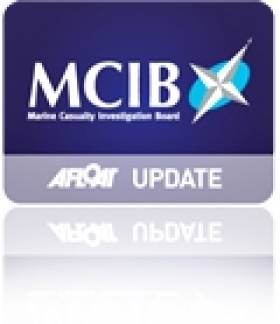Displaying items by tag: Kevin O'Farrell
Epilepsy, Lack of Lifejacket Big Factors in Death of Dublin Boatman - MCIB
#MCIB - The death by drowning of a South Dublin boatman may have been avoided had he been wearing a lifejacket or buoyancy aid, according to investigators.
The report by the Marine Casualty Investigation Board (MCIB) into the death of Aidan Fennell off Dalkey Island on 12 October 2010 found that an epileptic episode could have caused him to fall overboard from his rowboat and become disorientated once in the water.
Fennell, 43, was considered a competent boatman and a strong swimmer used to cold water, though was prone to seizures where he could not control his muscles and lost sense with reality, on occasion becoming unconscious.
On the afternoon of 12 October last year Fennell had launched his boat from Coliemore Harbour in fair conditions, intending to ferry a German family to Dalkey Island. When they pulled out of the trip, Fennell decided to row to the island on his own, with no flotation devices on board.
He was last seen by friend Kevin O'Farrell at 2.50pm. Around half an hour later, O'Farrell became concerned as to Fennell's whereabouts when he had been out of sight for some time.
After notifying the Irish Coast Guard, the Dun Laoghaire lifeboat and coastguard helicopter Rescue 116 were dispatched to search the area. Fennell's boat was located before 4pm washed on the rocks at the southeast end of Dalkey Island, and his body was found in the water close by some 10 minutes later.
No injuries were found on Fennell's body, suggesting that he went into the water before his boat washed up on the rocks.
The report concluded that if he had fallen overboard in normal conditions "it is considered likely that he could have swum to his boat, or clung on to the oars.
"However, if he had suffered an epileptic episode... he would have had great difficulty in staying afloat, in particular without having the buoyancy assistance of a life jacket."
The full report is available to download as a PDF from the MCIB website HERE.




























































